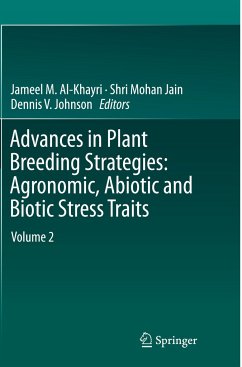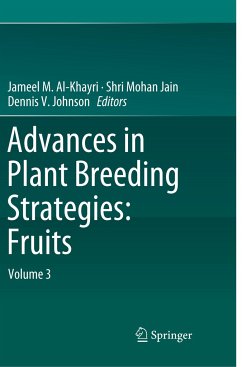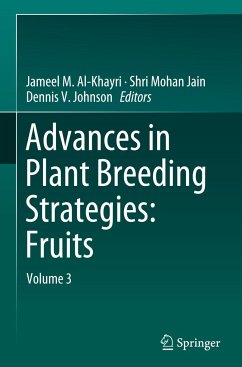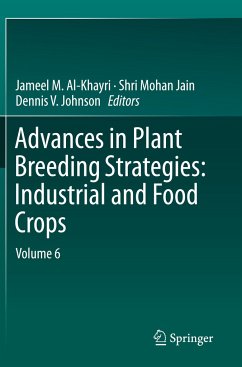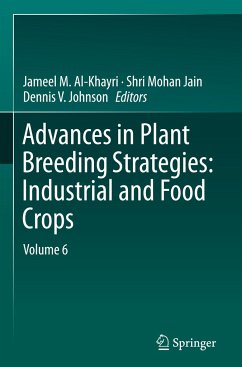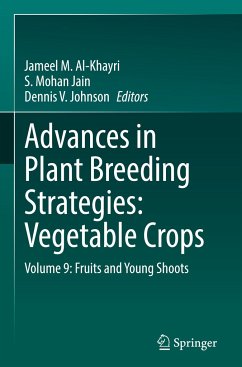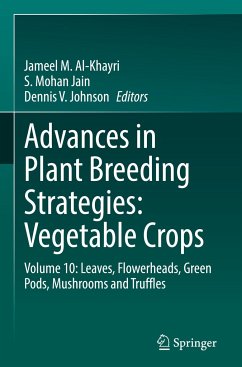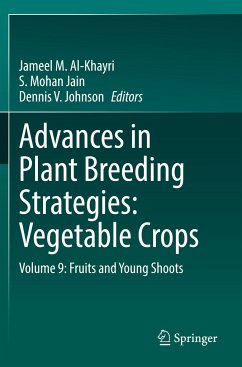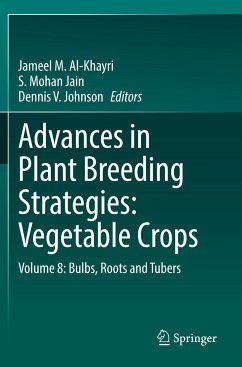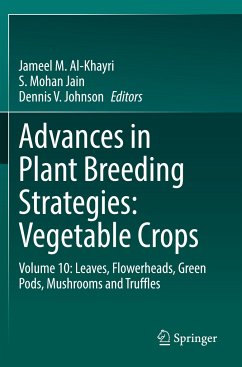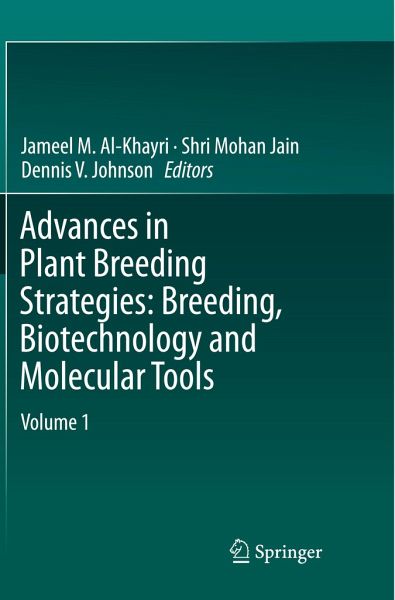
Advances in Plant Breeding Strategies: Breeding, Biotechnology and Molecular Tools
Versandkostenfrei!
Versandfertig in 6-10 Tagen
213,99 €
inkl. MwSt.

PAYBACK Punkte
107 °P sammeln!
The basic concept of this book is to examine the use of innovative methods augmenting traditional plant breeding towards the development of new crop varieties under different environmental conditions to achieve sustainable food production. This book consists of two volumes: Volume 1 subtitled Breeding, Biotechnology and Molecular Tools and Volume 2 subtitled Agronomic, Abiotic and Biotic Stress Traits. This is Volume 1 which consists of 21 chapters covering domestication and germplasm utilization, conventional breeding techniques and the role of biotechnology. In addition to various biotechnol...
The basic concept of this book is to examine the use of innovative methods augmenting traditional plant breeding towards the development of new crop varieties under different environmental conditions to achieve sustainable food production. This book consists of two volumes: Volume 1 subtitled Breeding, Biotechnology and Molecular Tools and Volume 2 subtitled Agronomic, Abiotic and Biotic Stress Traits. This is Volume 1 which consists of 21 chapters covering domestication and germplasm utilization, conventional breeding techniques and the role of biotechnology. In addition to various biotechnological applications in plant breeding, it includes functional genomics, mutations and methods of detection, and molecular markers. In vitro techniques and their applications in plant breeding are discussed with an emphasis on embryo rescue, somatic cell hybridization and somaclonal variation. Other chapters cover haploid breeding, transgenics, cryogenics and bioinformatics.



